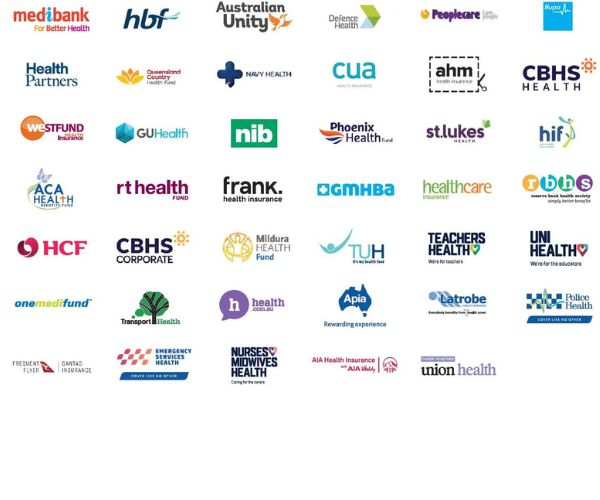
Private dental clinics provide most dental care in Australia. And as dental is not covered by Medicare (except for government-funded dental for a small percentage of us), many Aussies choose dental cover to avoid any nasty surprises.
All insurance funds are not the same, though. This article explains how dental cover and health insurance policies work, how they differ and gives tips on what to look for when choosing your fund.
KEY POINTS:
- There’s no such thing as ‘dental health insurance’, but there is health insurance that covers dental through an ‘extras’ health insurance policy.
- ‘Dental cover’ is an umbrella term for the dental benefits (rebates) offered as an extras health insurance policy.
- Dental cover can be divided into four groups: general, major, orthodontic, and endodontic.
- Many Aussies take out ‘hospital cover’ with their health insurance policy. This cover may be helpful if you require dental surgery, such as wisdom teeth extraction. While Medicare covers 75% of their standard fee, your health insurance could help cover a portion or all of the remaining 25%.
- Understand the wait period: wait periods usually apply when you start an insurance policy; however, wait periods vary. Typically, the more expensive the treatment, the longer you must wait. For example, you may have to wait a year for dental implants, while a checkup, scale and clean may only require two months’ wait.
- Switching health funds? If you’ve completed your wait with another insurance fund, you’ll usually be exempt from wait periods with your new fund.
Benefits of dental cover in Australia
- Looking after your teeth matters. Without good dental care, you can suffer dental decay, gum disease, bad breath, tooth loss and much pain and suffering. You’ll also increase the risk of other bodily diseases and conditions, such as heart disease, certain cancers and respiratory illnesses.
- The approximate cost of an examination, dental clean, scale, x-rays and fluoride treatment is $350. And on average, Aussies spend $203 a year on dental fees.
- Cosmetic dentistry can also be claimed with some health insurance policies. This means teeth whitening, dental crowns to cover unsightly cracks or blemishes, or even dental implants could all be covered through your insurance fund.
- Accidents and dental emergencies can be exceedingly expensive. If your teeth are knocked out in a car crash, accident or sporting event, you could be set back tens of thousands of dollars through dental bills. One dental implant (with an abutment and crown) could set you back around $4000. Meanwhile, an entirely new set of teeth supported by implants could cost you $50,000 or more. Dental health insurance could take some sting out of your expenses.
- If you have an accident, Medicare does not cover ambulance expenses, which can cost anywhere from one to several thousand dollars.
How to choose dental cover
Currently, there’s no such thing as stand-alone dental cover. Instead, various health insurance funds offer health insurance for dental via an extras policy. Extras also cover other services such as optical, physiotherapy and chiropractic.
How do you know which insurance fund is right for you? Consider the following:
- Do you want a percentage or dollar limit?
- Some health insurance funds will give you a percentage fee for your dental bill, up to an annual limit. Other funds offer fixed-dollar repayments. A percentage fee will give you more money back if you choose an expensive dentist. However, the amount may reach its limit more quickly.
- Are you happy using a health fund’s Preferred Provider?
- Some health insurance funds choose Preferred Providers in select suburbs. If you choose these providers, you’ll get more upfront pricing, usually at reduced costs, due to the dentist’s arrangement with the insurance fund. If this appeals to you, check that you have a preferred provider nearby. If there’s none nearby, this benefit won’t be helpful.
- Warning: preferred provider programs do carry some risk. If your health fund changes preferred providers, you may be forced to find a new dentist for the remainder of your treatment. This destroys what we call ‘continuity of care’.
- Know your limits
- All extras policies have limits, so check closely to see what they are. There are annual limits, lifetime limits, service limits and more. Consider the services you may need in the future, such as general checkups, dental crowns, orthodontics, root canals or dental implants and identify how much you could claim when required.
- Explore comparative websites
- Australia has several comparative websites available online. As everyone’s needs differ, they can be pretty helpful by making the decision process easier. Not all health insurance funds are listed, though, so you may find it more effective to go to a government website: privatehealth.gov.au or choice.com.au — both of which offer unbiased, detailed information on policies by health insurance funds.
TIP: Don’t be fooled into thinking bigger = better. Larger health funds don’t always give the best returns. Several small private health insurance funds offer more detailed, generous cover with higher rebates, so compare as many health funds as possible.
Understanding the wait periods
Most health insurance funds require you to wait a certain period from when you join before you claim. Occasionally, they’ll advertise a special deal where they waive this waiting period, but you’ll usually have to wait.
Generally speaking, the cheaper the dental service, the less wait time is required. Take a look at the chart below:
General Dental: 2 months
Examples:
- Dental exam/scale and cleans
- Fillings & fissures
- Tooth extractions
Major Dental: 12 months
Examples:
- Dental crowns
- Dental bridges
- Tooth veneers
Complex Dental: 12 months
Examples:
- Dental implants
- Orthodontics (braces)
- Endodontics (root canal)
Dental cover for kids: helpful tips
Your child may be covered for free.
If you have a couple’s or family health insurance policy, you can likely add your child to the policy at no extra charge. However, check with your health insurance fund as rules vary. Also, wait periods may apply.
Consider free services available at school: The School Dental Service (SDC) provides free dental service to children from the age of 5 to 16 (or the end of year 11, whichever comes first) to children attending a Department of Education recognised school.
Is your child eligible for CDBS?
The Child Dental Benefits Schedule (CDBS) scheme is a service the Australian government runs that offers eligible children up to $1026 towards dental treatment over two calendar years. Eligibility is based on families who receive certain government payments through Centrelink.
Should you get cover for your child’s braces?
Insurance policy cover for braces varies significantly. Some may only pay a couple of hundred dollars, while others will pay over $2500. Before you choose, consider the following:
- Insurance is only worth it if you claim more than you spent. For example, a family’s premium extras policy may cost $5000 over three years, according to Choice Magazine. So, taking out an extras policy purely for braces won’t be viable.
- Choice suggests that the only way to make your policy worthwhile is to claim other extras—on top of regular dental checkups—during this time, such as physio, optical, psychology and massage.
- Most insurance funds require a 12-month wait period for braces. Then, getting braces usually takes one to two years, so you’ll need health insurance for two to three years.
Are you a single parent?
Most health insurance funds charge single parents 30% less than two-parent families. Review your policy if you’re paying the same as a two-parent family.

Helpful reading on dental cover
PrivateHealth.gov.au – Comprehensive, independent private health insurance information
Learn how health insurance works, get detailed information on policies, performance and contact information, compare policies and more.
An initiative of the ADA, this website allows you to compare your health insurance policy to others or sign a letter of complaint to your health insurer if you’re unhappy with your service.
Making a complaint about your insurance fund
If you’re unhappy with your health insurance fund, you can make a complaint. In recent years, the number of complaints has escalated dramatically. From 1st of April 2020 to 31st of March 2021, 3552 complaints were received by the Commonwealth Ombudsman.
If you’ve been unhappy with your fund, we recommend you first contact your health fund directly—in writing—so everything is documented. If you’re left with your issue still unresolved, you should contact the Commonwealth Ombudsman (also the Private Health Insurance Ombudsman). They can determine the seriousness of your complaint and if further action is required.
To make a complaint, visit the Commonwealth Ombudsman website.
